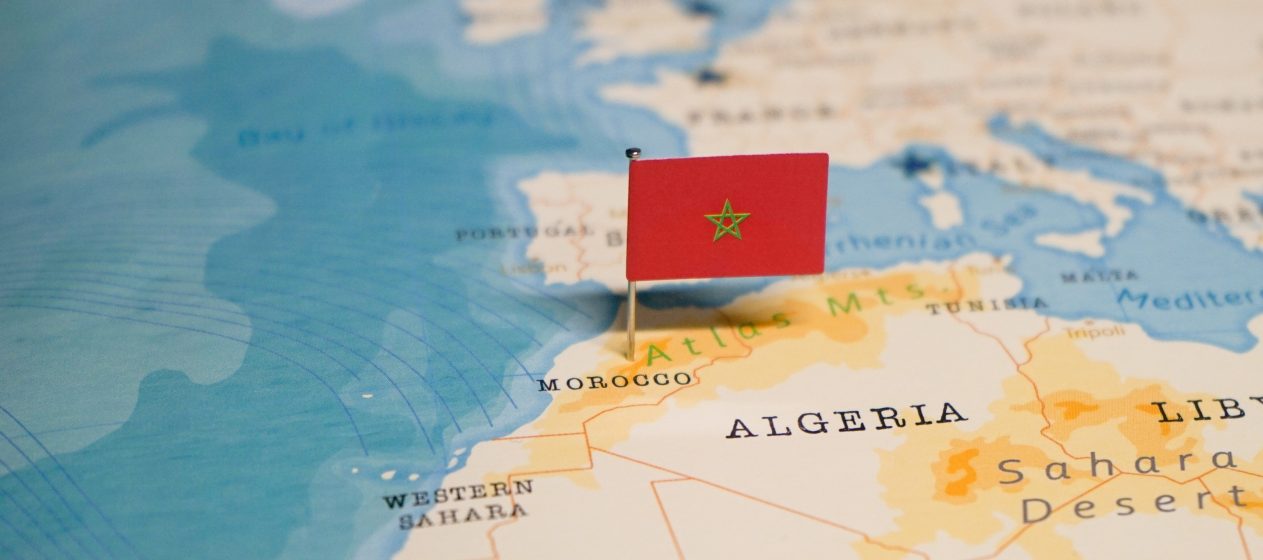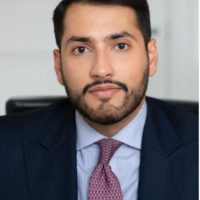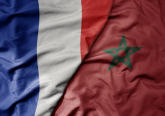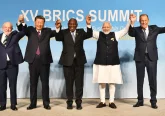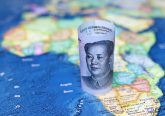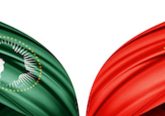The Moroccan moment: Global engagement and domestic reform
Over the past decade, Morocco has revamped its international engagement, aligning it with its economic growth and domestic reforms. Morocco is committed to consolidating its status as a multipolar actor on the international stage. Moving beyond aid dependency, Morocco is firmly committed to fostering equitable partnerships with the global community. The nation’s strong commitment to expanding its trade partnerships and engaging with a wide range of stakeholders clearly reflects its enthusiastic pursuit of multilateral prominence on the global stage. The hosting the International Monetary Fund (IMF) – World Bank 2023 annual meeting in Marrakech in October was a keystone in this transformation.
This article summarises a comprehensive report focusing on Morocco’s interactions with key international organisations, highlighting the expansion and reorientation of certain relationships. Morocco’s hosting of the IMF and World Bank meetings in Marrakech, despite the challenge posed by a major earthquake in early September, is a testament to the country’s broader strategy of nuanced international engagement and commitment to multilateralism. It is also a major milestone for the African and Muslim worlds and a diplomatic coup for the Global South as a whole. Overall, Morocco’s hosting of this year’s meetings reinforces its growing strategic position in an increasingly multipolar world with South-South cooperation at its core.
This moment encapsulates the “Moroccan moment,” symbolising Morocco’s evolution towards greater global influence – not least as a partner in multilateral organisations.
Morocco in the world today
Morocco has a long history of strategic engagement with international organisations, underlining the Kingdom’s aspirations to be a dynamic player on the world stage. These relations are not purely transactional but are based on mutual respect, shared values, and common interests. They have provided the country with financial and technical assistance, as well as a constructive dialogue that has helped it to develop and enhance its economic policies and performance. Morocco is committed to continuing its engagement with these organisations to achieve its development goals.
Morocco’s economy, historically based on agriculture and crafts, is undergoing a transformation. The Kingdom has rapidly developed key sectors like renewable energy, aerospace, and sustainable tourism, raising its international profile. Projects such as the Noor Ouarzazate Solar Complex, among the world’s largest solar power plants, or the Tangier Med Port, one of the region’s largest ports, reflect Morocco’s commitment to a sustainable future and to facilitating trade between Europe, Africa, and beyond.
Morocco is Africa’s fifth largest economy by GDP and is one of the continent’s fastest growing economies, with steadily improving infrastructure. Morocco’s progress is evident in its burgeoning renewable energy, aerospace, and tourism sectors. This year, Morocco unveiled plans to provide 8-10% of the UK’s electricity, the latest in a series of developments that include Africa’s first hydrogen vehicle, its first high-speed train network, and the world’s largest solar power plant. The nation’s soft power initiatives include promoting religious tolerance and acting as a mediator in Middle East affairs through peacekeeping efforts and diplomatic initiatives. Morocco is increasingly seen as a positive force in the world, seeking to bring stability and development not only to the region, but to Africa and beyond through proactive engagement with organisations such as the UN, the African Union, and the European Union, and a willingness to contribute constructively to global dialogues and partnerships.
Morocco and the International Monetary Fund (IMF)
An IMF member since April 1958, Morocco’s relationship with the organisation has focused on economic stabilisation and structural reforms. Since 1995, Morocco has participated in several IMF programmes to support fiscal and economic reforms, debt management, and macroeconomic stability. This cooperation with the IMF has improved Morocco’s access to capital markets, thereby boosting investor confidence. In 2012, the IMF approved a Precautionary Liquidity Line (PLL) arrangement for the Kingdom, a credit facility available not only to countries with strong macroeconomic fundamentals and sound policies.
Regular consultations were held under Article IV of the IMF’s Articles of Agreement, and technical assistance was provided in areas like tax policy, public financial management, and monetary policy. Amidst the COVID-19 pandemic, the IMF supported Morocco’s response to the resulting economic fallout, including financial assistance, policy support, and flexibility in implementing existing programme commitments.
In April, the IMF formally approved a two-year US$5 billion crisis-prevention Flexible Credit Line (FCL) for Morocco, recognising the country’s strong policies and commitment to future reforms. Morocco’s ongoing engagement with the IMF revolves around the country’s economic challenges and opportunities. Cooperation is likely to focus on areas such as fiscal responsibility, monetary stability, job creation, sustainable growth, and the addressing of vulnerabilities created by global economic conditions.
Morocco and the World Bank
Morocco has been working with the World Bank since their first joint project in 1962. Over the years, the World Bank has implemented some 260 initiatives in Morocco, providing more than US$10 billion in loans and grants for various development projects. These projects cover economic growth, poverty reduction, health, education, infrastructure, water and sanitation, climate change adaptation, and the improvement of governance and public administration. Morocco has also been successful in gradually creating a liberalised business-friendly environment, according to the World Bank’s Doing Business 2015 report. The Kingdom was singled out in particular for its measures to reduce documentation for exports across its borders.
In response to the COVID-19 pandemic, the World Bank approved a US$48 million loan in June 2020 to support Morocco’s primary health care services and pandemic management. A US$450 million loan was also approved in June 2023 to strengthen the delivery and quality of public health services, with a focus on improving health infrastructure. Morocco is currently undergoing a major health system overhaul to improve health outcomes and service quality.
The World Bank has also provided loans to boost Morocco’s climate change resilience initiatives. These efforts are in line with Morocco’s commitment to combat climate change and build resilience, as outlined in its Nationally Determined Contributions. Morocco has seen a reduction in its carbon dioxide and sulphur emissions following the enforcement of strict sulphur limits and restrictions on petrol and diesel, which has increased the World Bank’s confidence in investing in the Kingdom’s growth.
The World Bank’s long-standing partnership with Morocco aims to put the country on a sustainable growth path. As Morocco’s development goals evolve, the World Bank remains committed to supporting the country’s development and adapting to its changing needs and aspirations.
Morocco and the World Trade Organisation (WTO)
A member of the WTO since 1995, Morocco has actively aligned its trade policy with WTO rules and participated in multilateral trade negotiations. The country has worked to liberalise its trade regime, reduce trade barriers, simplify customs procedures, and promote integration into the global economy.
Despite a positive engagement with the WTO, challenges remain, notably the Western Sahara conflict (tensions with other WTO members who do not recognise Morocco’s claim to Western Sahara) and Morocco’s difficulties in implementing some WTO rules, such as the elimination of agricultural subsidies, due to its developing country status and relatively low per capita income.
However, Morocco sees the WTO as crucial to promoting trade and economic development. WTO membership has increased market access, improved Morocco’s investment climate, boosted economic growth, and enhanced access to technology. As Morocco strengthens its regional economic presence, its engagement with the WTO is expected to deepen.
Morocco and the European Union (EU)
Morocco’s relations with the EU are wide-ranging, covering political, economic, social and cultural matters. The partnership dates back to 1960 and has been marked by various cooperation agreements and collaborations. In 1995, Morocco became a founding member of the Euro-Mediterranean Partnership, which strengthens political, economic and social cooperation between the EU and 16 countries in the southern and eastern Mediterranean. A major milestone was the 2000 Association Agreement, which established a free trade area and enabled dialogue in areas like agriculture, education, and the environment.
Morocco also participates in the European Neighbourhood Policy, which promotes political and economic cooperation between the EU and its neighbours. Challenges remain, notably over the status of the Western Sahara, the Moroccan government’s restrictions on freedom of expression and assembly, and human rights concerns. However, both parties engage in a constructive dialogue on these issues.
The relationship between Morocco and the EU is of vital importance to both parties, not least because of their geographical proximity and common interests. Their shared interest in promoting regional stability and prosperity and tackling global challenges like climate change and terrorism bind them. More than a diplomatic alliance, this partnership represents a shared vision for a prosperous future.
The Moroccan moment: Morocco’s future multilateral engagement
Instead of relying on aid, Morocco is promoting equitable partnerships with the global community, based on trade and development. These efforts come at a time when Morocco is positioning itself as a key player on the regional and global stage. Most notably, in December 2020, Morocco normalised its relations with Israel, following former US President Donald Trump’s official recognition of Morocco’s claim to the disputed Western Sahara region. In 2019, Morocco withdrew its support for the Saudi-led military coalition fighting against Houthi rebels in Yemen.
This foreign policy stance, combined with the potential for economic reform, has attracted positive attention from the West. Morocco is thus developing an independent foreign policy while maintaining excellent ties with international organisations, allowing it to strengthen its partnerships. It is also increasingly developing relations with its African neighbours in an era of African regionalism.
Conclusion
Morocco is positioning itself as a key regional and global player. Located in a geostrategic position at the crossroads of the Middle East and North Africa (MENA), Africa, and Europe, Morocco is actively pursuing a robust and independent foreign policy. Its foreign policy positions have attracted positive attention from the West. Morocco’s neutral foreign policy is accompanied by its efforts to maintain strong relations with international organisations, enabling it to strengthen its international partnerships.
Morocco is committed to economic reform and is working hard to strengthen its economic resilience, but also to position itself as a beacon of sustainable development. Central to Morocco’s long-term prosperity is its New Development Model, which focuses on social protection, inclusiveness, and gender equality. Building a robust welfare state is socially vital and politically critical. The Moroccan government must continue to engage with society and the business community to carefully build comprehensive social protection systems, including health insurance coverage. The dynamism that Morocco has exhibited in its international relations must now be demonstrated domestically.
The country faced economic challenges during the pandemic, particularly in the tourism sector. Climate change and drought conditions have and will continue to affect Morocco’s agricultural production and exports. The country must remain determined to resolve its developmental needs and introduce necessary reforms to maintain its status as a preferred partner with international institutions. Recent loans, such as the July 2023 World Bank USD 350 million loan for Morocco’s National Program for Potable Water Supply and Irrigation (PNAEPI) show Morocco’s sustained engagement with international organisations.
In Morocco, hosting the annual meetings of the IMF and the WBG was seen as recognition of decades of work to implement necessary structural reforms, strengthen the economy, create a more independent foreign policy, and emerge as a rising regional power. These steps have and will continue to enhance Morocco’s credibility as a stakeholder and partner in regional organisations such as the AU, while encouraging the flow of foreign direct investment into the country to support development. Such relationships are crucial as Morocco pursues an ambitious economic plan and continues to face severe constraints due to the lack of economic integration at the sub-regional level in the Maghreb. These efforts will coincide with the inevitable resolution of the Sahara issue, upon which Morocco’s robust and growing bilateral and international relations are focused.
Note: This article reflects the views of the authors and not the position of the DPIR or the University of Oxford.

